Any argument that is in the form of "If" will be valid, and any argument that affirms the consequent will be invalid A valid argumentform If p, then q p Therefore, qAnargument formis said view the full answer Previous question Next questionBecause if P is false, the first two would be (vacuously) true, but it might be that also Q is true and R is false, which would make the last one false!P q p → q ∼ q ∼ p T T T F F T F F T F F T T F T → F F T T T In this case there is only one critical row to consider, and its truth value it true Hence this is a valid argument Result 22 (Generalization) Suppose p and q are statement forms Then the following arguments (called generalization) are valid p p∨q q p∨ q Result 23

Negating The Conditional If Then Statement P Implies Q Mathbootcamps
If p then q not q therefore not p example
If p then q not q therefore not p example-Therefore not q Here is part of an argument If my esteemed colleague would stop listening to only his own voice, he would doubtless be astonished that there are other minds in I'm trying to construct a formal proof for 'P → Q ≡ ¬P ∨ Q' in Fitch I know this is true, but how do I prove it?



Royalsocietypublishing Org Doi Pdf 10 1098 Rspa 1933 0086
Is the following argument sound?If P, then Q P Therefore Q This is an example of a _____ argument asked Feb 15 in Philosophy & Belief by werdninja Fill in the blank(s) with correct word introductiontophilosophy;If P Then Q Therefore Truth Table;
Therefore the disjunction (p or q) is true Composition (p → q) (p → r) ∴ (p → (q∧r))Denying the antecedent, sometimes also called inverse error or fallacy of the inverse, is a formal fallacy of inferring the inverse from the original statement It is committed by reasoning in the form If P, then Q Therefore, if not P, then not QLearning Objectives1) Interpret sentences as being conditional statements2) Write the truth table for a conditional in its implication form3) Use truth tabl
If P then Q Q Therefore, P It is often a mistake to reason with an argument of this form This is not valid If Jane lives in London, then Jane lives in England Jane lives in England Therefore Jane lives in London Here are some other patterns of valid argumentTherefore, ∼ p B Valid argument If p , then q ∼ p Therefore, ∼ q B Invalid argument How to determine if an argument is valid/invalid? The contrapositive of the statement "If p, then q", is A If q, then p mathematical reasoning;




Whats The Name Of The Of The Argument Form If P Then Q If P Then Q Therefore Q Quora




Critical Thinking Study Guide Studocu
It goes like this 1) Beg, borrow, steal, buy, fabricate or otherwise obtain a rubber duck (bathtub variety) 2) Place rubber duck on desk and inform it you are just going to go over some code with it, if that's all right 3) Explain to the duck what you code is supposed to do, and then go into detail and explain things line by line 4) At someConverse and contrapositive • For the proposition P => Q, the proposition Q => P is called its converse, and the proposition ~Q => ~P is called its contrapositive • For example for the proposition "If it rains, then I get wet", Converse If I get wet, then it rains Contrapositive If I don't get wet, then it does not rain Can you give me some more examples for the truth values of P>Q ?




Slides Show




Negating The Conditional If Then Statement P Implies Q Mathbootcamps
How it is Read P→Q "If P, the Q" Q→R "If Q, then R" ∴P→R "Therefore, if P, then R" List of Symbols →/⊃ Conditional, ifthen •/∧ Conjunction, "and, but, yet, still, however, moreover" ↔/≡ Biconditional abbreviated as iff, meaning "if and only if" v Disjunct "eitheror" ~/¬ Negation "not" ∴ Conclusion "therefore" 4Therefore either not p or not r Simplišcation (p∧q) ∴ p p and q are true;I know when we have P , Q there are 4 possible truth value for p> Q P Q P>Q 1 T T T 2 T F F 3 F T T 4 F F T Fore the first and second I have some examples but for the third and forth I




Introduction To Philosophy Smu Fall 16 Tools




Formal Logic The Propositional Calculus Britannica
If P, then Q Q is false Therefore, P is false In logical operator notation where represents the logical assertion Or in settheoretic form ∴ ("P is a subset of Q x is not in Q Therefore, x is not in P") The argument has two premises The first premise is the conditional "ifthen" statement, namely that P implies QA valid argument form made up of three hypothetical, or conditional, statements If p, then q If q, then r Therefore, if p, then rIf p then q p Therefore, q If p then q Notq Therefore, notp Exposition In contrast, affirming the consequent is a nonvalidating form of argument;




Logic Donna Musiyandaka Ppt Download




Key Notes Exam1 Iss 305 Evaluating Evidence S Sc N Docsity
If we have ~(p∧q), we cannot simply replace it with ~p∧~qIf we replace ~(p∧q) with ~p∧~q, we will actually be changing the meaning of our statementBut is there some other way to get rid of the parentheses? If P, then Q Funny Weird Logical Argument Deductive Argument Therefore, I'm 96% Jesus Although it sounds ridiculous, it is a perfectly valid argument with false premise If P then Q If P then R It does not at all imply that If Q then R Why?




1 Valid And Invalid Arguments 2 Definition Of Argument Sequence Of Statements Statement 1 Statement 2 Therefore Statement 3 Statements 1 And 2 Are Ppt Download



Know Your Logical Proofs Smbc Comics
Whether P is true or false, we have ¬ P ∨ Q, so we've shown that P → Q implies ¬ P ∨ Q Conversely, suppose we know ¬ P ∨ Q To prove that P → Q , we assume P and prove QIf P, then Q 2 If Q, then R 3 Therefore, if P, then R Disjunctive Syllogism (DS) 1 P or Q 1 P or Q 2 notP 2 notQ 3" If not q and p implies q, then not p Example p = it is sunny, q = it is hot p → q, it is hot whenever it is sunny "Given the above, if it is not hot, it cannot be sunny" 11 Hypothe'calSyllogism " If p implies q, and q implies r, then p implies r Example p = it is sunny, q = it is hot, r = it is dry




Arguments Identifying Ordering Premises Premises Reasons Premises Reasons
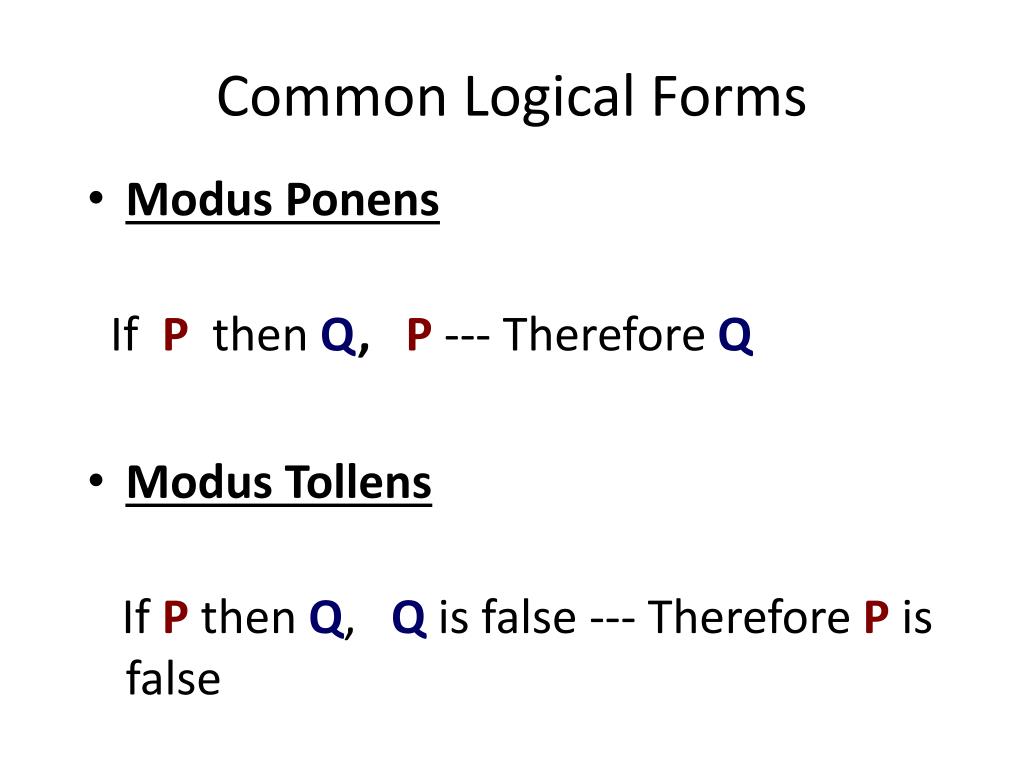



Ppt Dr Robert Barnard Powerpoint Presentation Free Download Id
Yes/ No If Yes, what is its logical form?Method 1 Construct a truth table 1 Identify the premises and conclusion 2 Construct a truth table for premises and conclusion 3 A row of the truth table in which all the premises are true isExactly what P → Q rules out So it's obviously correct to read P → Q as P only if Q If, on the other hand, introduces a sufficient condition P if Q means that the truth of Q is sufficient, or enough, for P to be true as well That is, P if Q rules out just one possibility that Q is true and P is false But that is exactly what Q → P



1



2
It's just that, as opposed to the regular and contrapositive forms, the condition for failure is reversed On the other hand, "if not p then q" is a completely different assertion(See this post for an explanation of the conditional) Even if you have If ( P implies Q ) then ( P implies R )Therefore, the argument must be valid 5 Valid We can test for validity by substituting statement variables into the argument If we do the substitution, we get If p, then q Not q Therefore, not p Upon inspection, we find that this is one of the common patterns of valid inference discussed above—modus tollens




Flat Earth Steel Cage Match Nathan Oakley Vs If P Then Q Q Therefore P Channel Q P Mars Youtube




Examples If P Then Q P Therefore Q B Valid Argument If P Then Q Q Therefore P B Course Hero
"If P then Q " intuitively means that P is enough to ensure that Q holds In this respect, P is called a sufficient condition for Q Conversely, " P only if Q " intuitively means that Q is a precondition of P holding true;Even though P implies Q, P also cannot hold without Q holding In this respect, Q is called a necessary condition for PCompute expertlevel answers using Wolfram's breakthrough algorithms, knowledgebase and AI technology Mathematics›




Is P Land P To Q To Q A Tautology Mathematics Stack Exchange




Research For Slope Structural Reliability Based On Probability Theory Scientific Net
Therefore p is true Conjunction p,q ∴ (p∧q) p and q are true separately;0 Answer 1 vote answered Feb 15 by kaydq Best answer Ans Modus Ponens No relatedTherefore they are true conjointly Addition p ∴ (p∨q) p is true;




Formal Logic The Propositional Calculus Britannica




Examples If P Then Q P Therefore Q B Valid Argument If P Then Q Q Therefore P B Course Hero
For instance, let "p" be false and "q" be true, then there is no inconsistency in supposing that the conditional premiss is true,The statement \pimplies q" means that if pis true, then q must also be true The statement \pimplies q" is also written \if pthen q" or sometimes \qif p" Statement pis called the premise of the implication and qis called the conclusion Example 1 Each ofTrue b False An argument of this form—If p, then q;




Examples If P Then Q P Therefore Q B Valid Argument If P Then Q Q Therefore P B Course Hero




1 Cpan 110 Week 9 Module 1 Creating Valid Arguments Diagramming Arguments Ppt Download
If an independent premise is removed,In conditional statements, "If p then q " is denoted symbolically by " p q ";But either not q or not s;




Examples If P Then Q P Therefore Q B Valid Argument If P Then Q Q Therefore P B Course Hero




Examples If P Then Q P Therefore Q B Valid Argument If P Then Q Q Therefore P B Course Hero
If P, then Q P Therefore, Q MODUS TOLLENS (MT) If P, then Q It's not the case that Q Therefore, it's not the case that PEXERCISE 2 Is the following argument valid?'If p, then q' and 'If notq, then notp' are equivalent propositions T In 'p only if q', the variable q stands for a necessary condition T Alexander will finish his book by tomorrow afternoon only if he is an accomplished speed reader Fortunately for him, he is quite accomplished at speed reading Therefore, he will get his bookPremises If p, then q p If p, then q q Conclusion Therefore, q Therefore, p Denying the Conseq uent (aka, Modus Tolens) Denying the Antecedent Premises If p,then q Not q If p, then q No t p Conclusion Therefore, not p Therefore, not q Hypothetical Syllogism Affirming a Disjunct Premises Conclusion If p, then q If q, then r Therefore, if p, then r Either p or q p Therefore, q
/converse-5655e26e5f9b5835e437fb1a.jpg)



What Is A Converse Error Fallacy




Still More On The Taxonomy Of Logical Fallacies Logic And Critical Thinking Logical Fallacies Ap Language
Yes/ No If No, explain (4) If Syracuse University is in Rochester, then it is in New YorkP→Q means If P then Q ~R means NotR P ∧ Q means P and Q P ∨ Q means P or Q An argument is valid if the following conditional holds If all the premises are true, the conclusion must be true Some valid argument forms (1) 1 P 2 P→Q C Therefore, QP is called the hypothesis and q is called the conclusion For instance, consider the two following statements If Sally passes the exam, then she will get the job If 144 is divisible by 12, 144 is divisible by 3




Reasoning Pptx Reasoning What Is Reasoning The Process Of Drawing Conclusions From Principles And From Evidence We Move From What Is Already Known To Course Hero




Logic Donna Musiyandaka Ppt Download
If P implies Q and Q implies R then P implies R Extended Keyboard;I don't know if this particular argument has a name, but it's a direct consequence of the law of excluded middle (LEM) which states that for all propositions mathp/math, mathp \lor \lnot p/math holds If you have mathp \lor \lnot p/mathIn this case, the truth values for ~(p∧q) and ~p∧~q are not exactly the same, so we can conclude that the two statements are not equivalent!So, this answers our question;




Argument Quality In Real World Argumentation Trends In Cognitive Sciences




Solved Question 11 1 Point The Valid Argument Form Know Chegg Com
Add a comment No comments so far Be first to leave comment below Cancel reply Your email address will not be published Required fields are marked * Post comment Notify me of followup comments by email Notify me of new posts by email If p then q q Therefore r Here is the truth table that illustrates the premises and the conclusion's possible truth values all at once Since there are 3 simple statements (p, q and r) involved it is bigger (twice as big!) than the previous truth tablesIf P, then Q Not Q Therefore, Not P Disjunctive Syllogism Either P or Q Not P Therefore, Q & Introduction P Q One example of a kind of inductive argument that is quite common is called an Argument by Analogy An argument by analogy occurs whenever one makes a comparison of two or more things and concludes, because of the similarity of
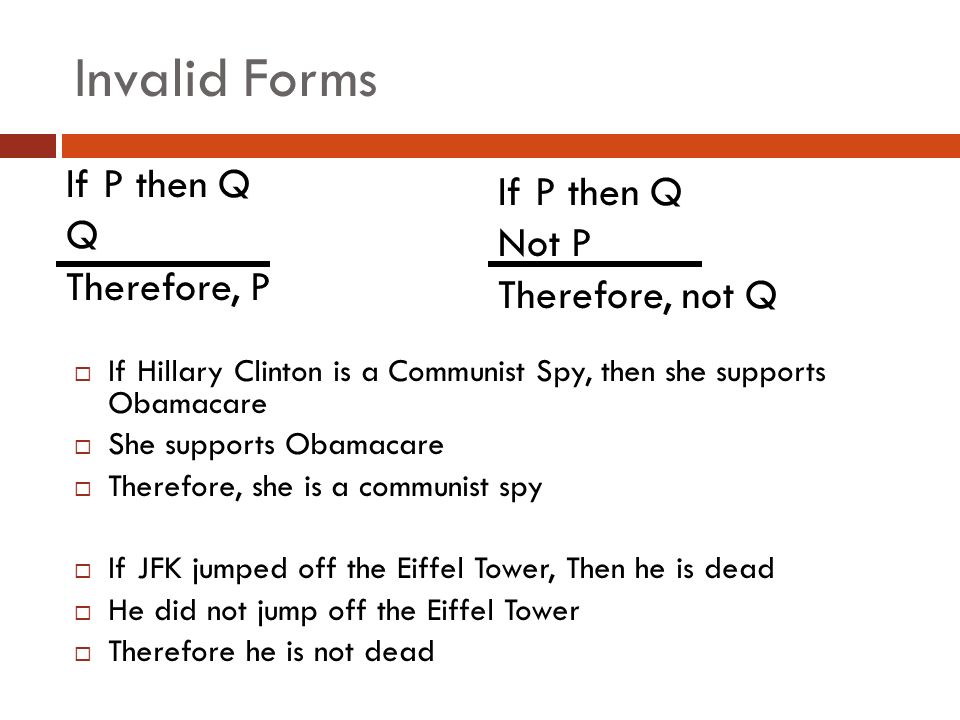



Philosophy Logic And Logical Arguments Ppt Video Online Download




Anselm Aquinas Sartre And Girard On The Ontological Argument
Therefore Q (You can negate the P or the Q interchangeably) False Dilemma – (Fallacy) Ignoring or disregarding other options and possibilities Conditional Material Implication Implication The relation that holds between the antecedent and the consequent of a conditional If P then Q (P is the antecedent and Q is theTherefore, q— is called modus ponens a True b False An argument of this form—If p, then q;(¬q∨¬s) ∴ (¬p∨¬r) if p then q;
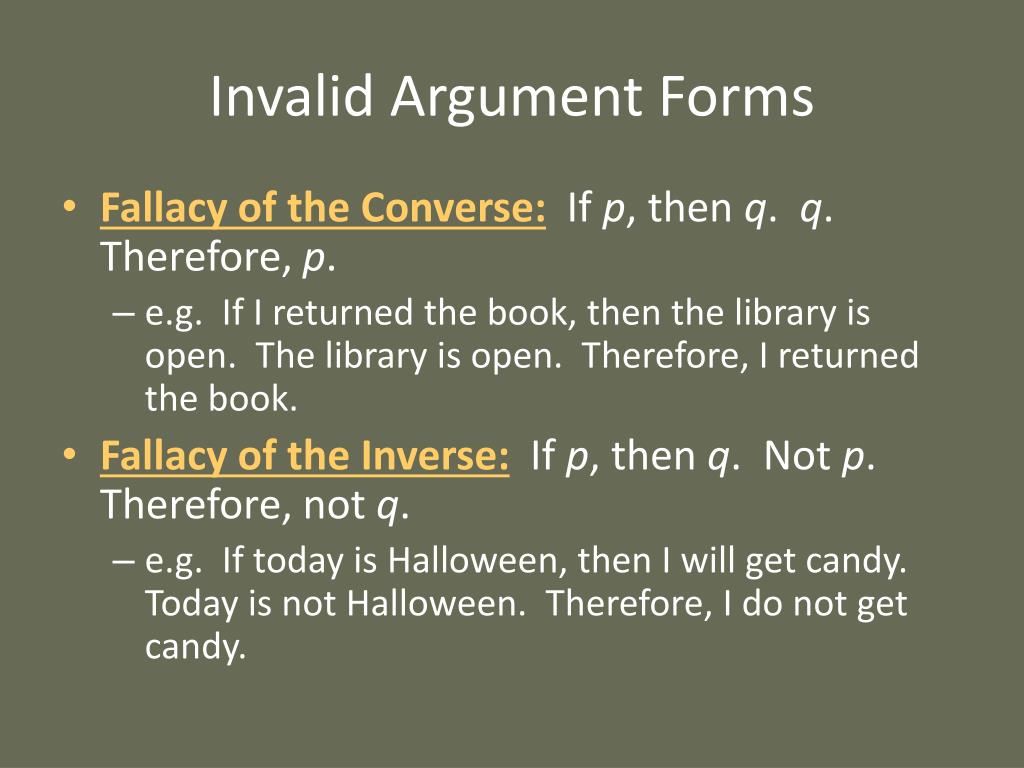



Ppt Verifying Arguments Powerpoint Presentation Free Download Id




Logic Proof
And if r then s;A valid argument form made up of three hypothetical, or conditional, statements If p, then q If q, then r Therefore, if p, then r Independent Premise A premise that does not depend on other premises to provide support to a conclusion;There's no name for it, because there's no real connection between them The inverse and converse exist because they still assert a direct correlation between p and q;




Whats The Name Of The Of The Argument Form If P Then Q If P Then Q Therefore Q Quora



1
Chapter Study Questions Chapter Summary Flashcard Key Terms Review Quiz SelfAssessment Quiz Study Guide Exercises Web Links Chapter 04 Chapter 05If p, then q Not q Therefore, not p If you don't care, fuck off like the circles that you find in the windmills of your mind or, maybe not I have just noticed the appearance of yet another window in 's sidebar which I use pretty often
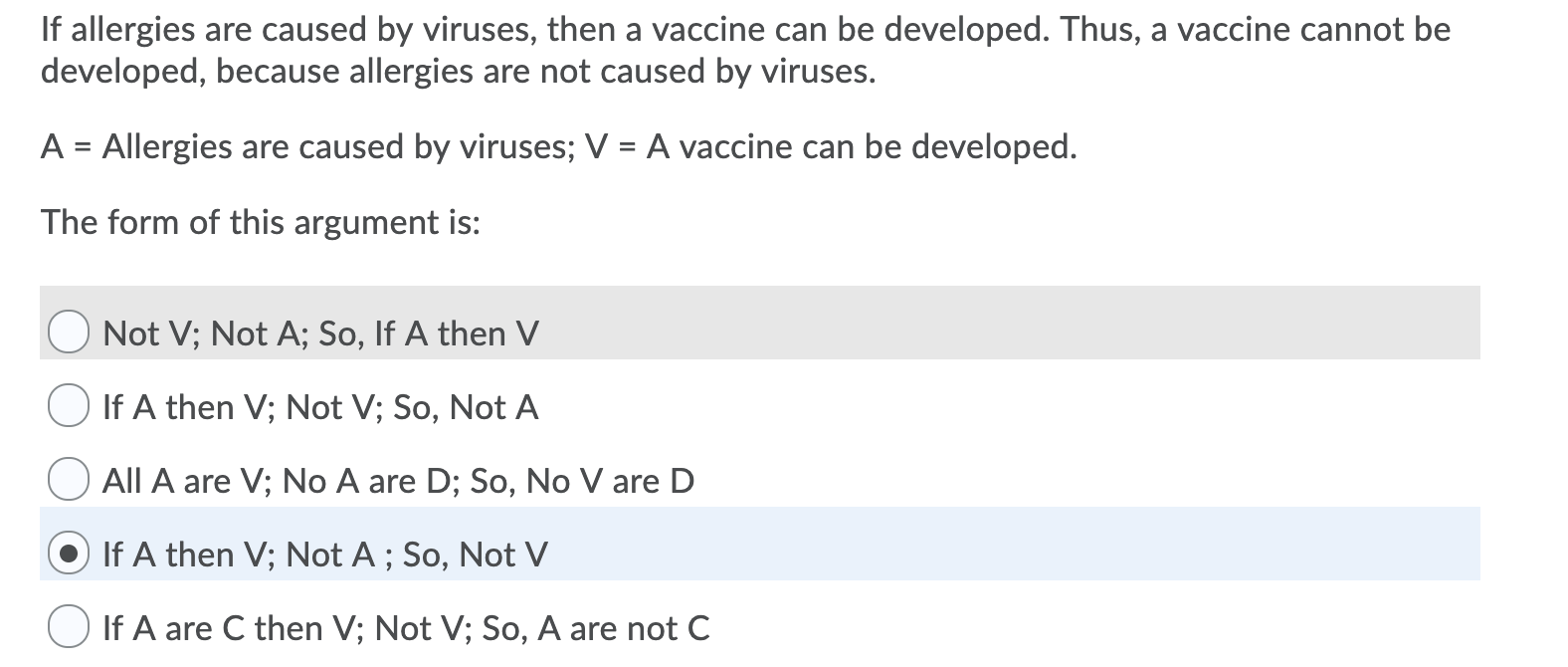



Which Of The Following Substitutions Proves The Chegg Com
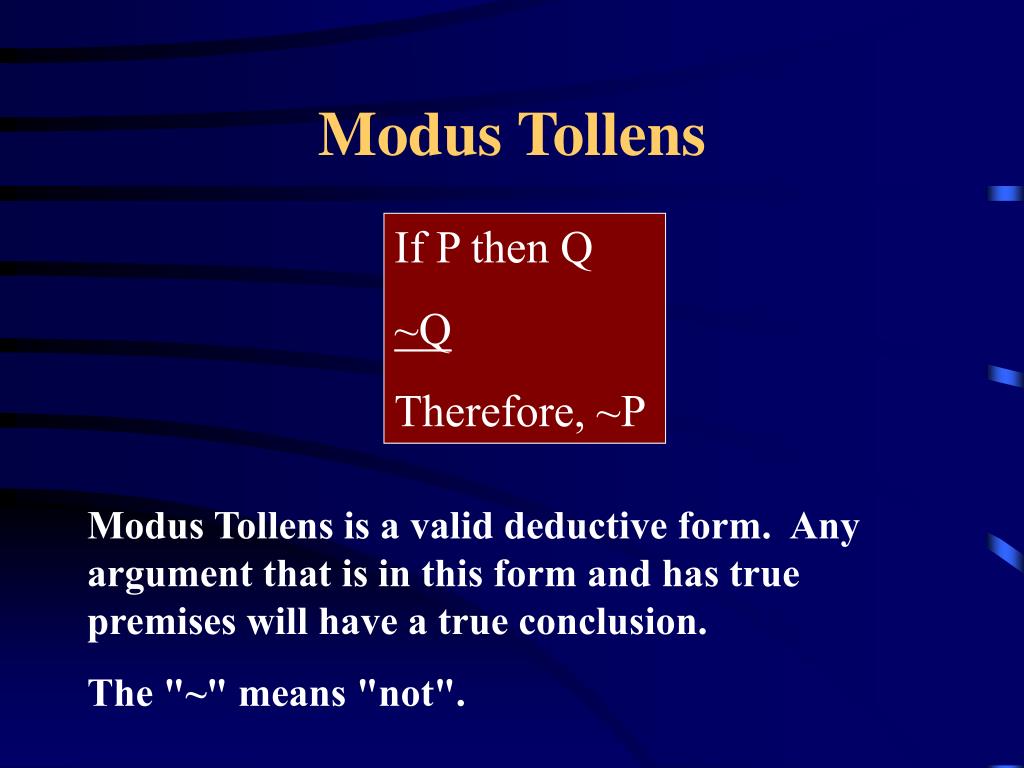



Ppt Essential Deduction Powerpoint Presentation Free Download Id




Chapter 22 Common Propositional Argument Forms Introductory Remarks P 2 This Chapter Introduces Some Of The Most Commonly Used Deductive Argument Ppt Download




Conditional Statements If P Then Q Youtube
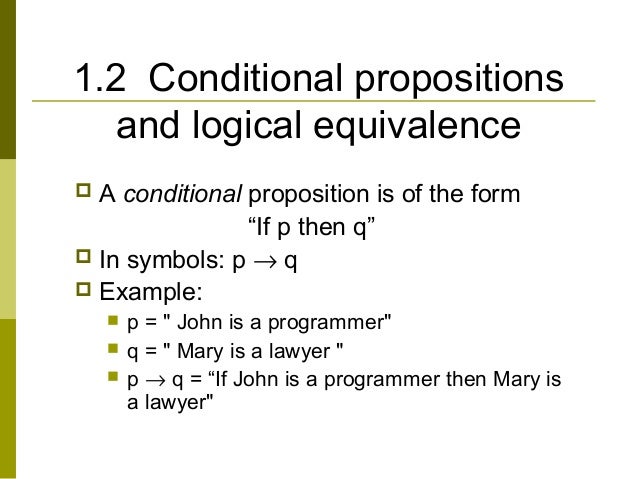



Logic Proof




Slides Show




Is P Land P To Q To Q A Tautology Mathematics Stack Exchange




Logical Arguments



Royalsocietypublishing Org Doi Pdf 10 1098 Rspa 1933 0086



Www3 Cs Stonybrook Edu Pfodor Courses Cse215 L03 Propositionallogic Pdf




Logic Ppt Video Online Download




Introduction To Philosophy Smu Fall 16 Tools




Argument Quality In Real World Argumentation Trends In Cognitive Sciences




Lecture Notes Exam Review Studocu



1




Tricky Phil 105 Things Flashcards Quizlet



Www Jstor Org Stable



6 Conditional Derivations A Concise Introduction To Logic




Slides Show



P2c Com Sites Default Files Documents Resource File Teaching critical thinking Pdf



Www Jstor Org Stable
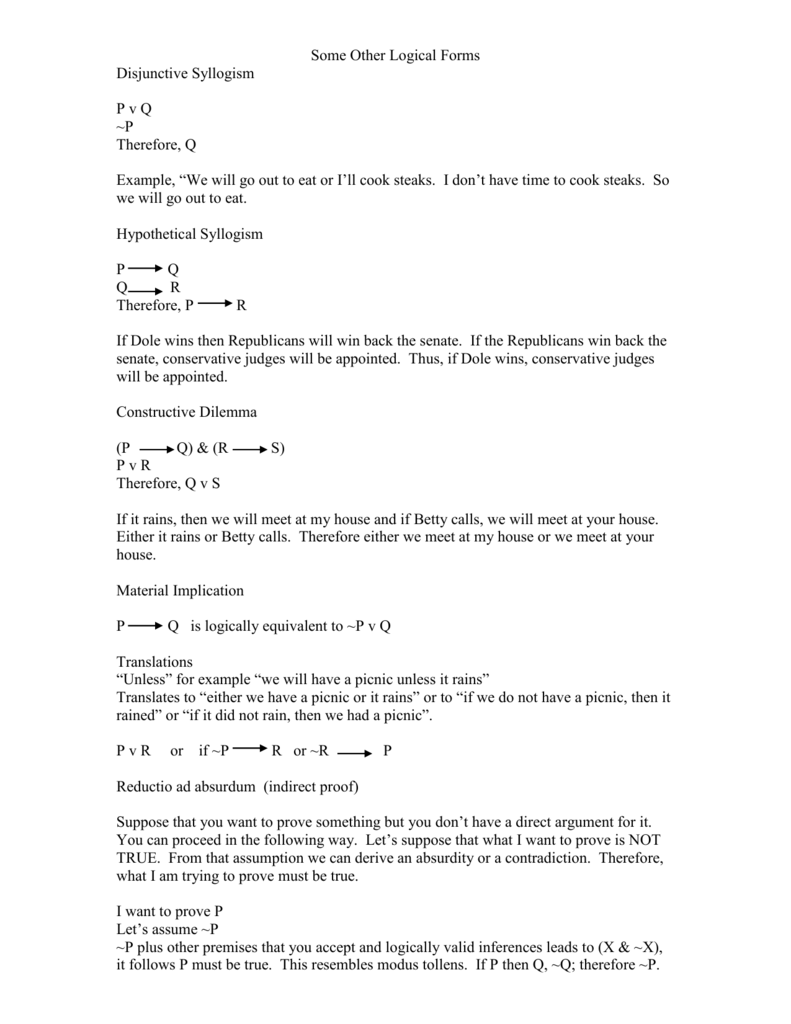



Some Other Logical Forms
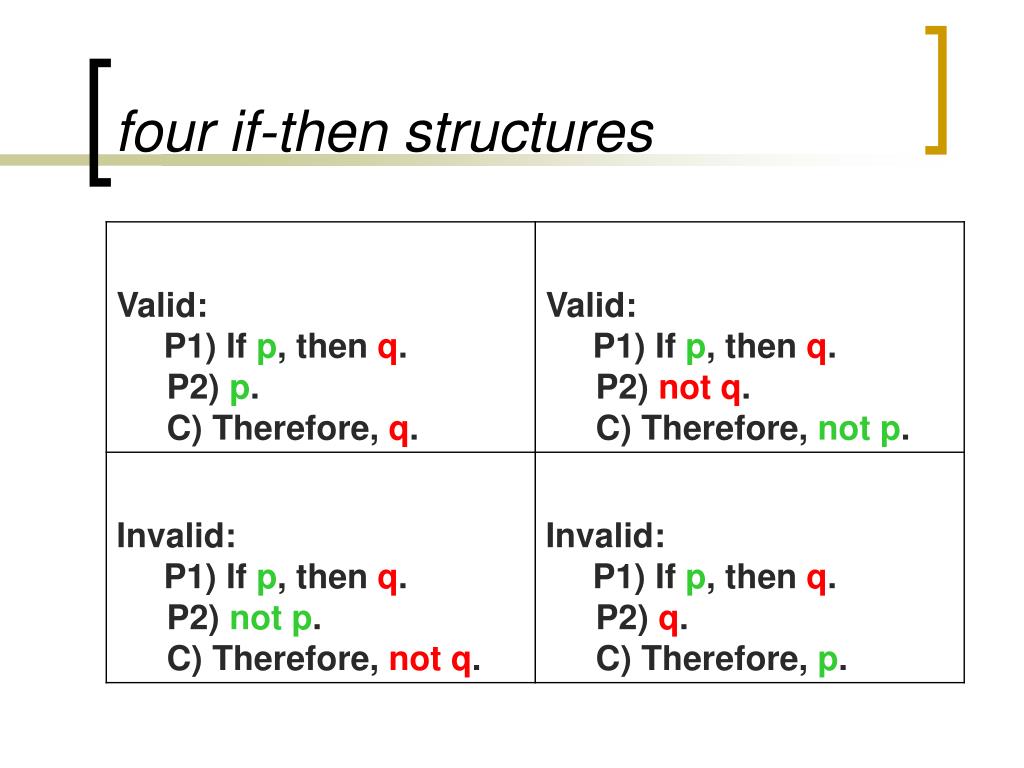



Ppt Logic Powerpoint Presentation Free Download Id




16 Write Modus Ponens In Symbolic Form Using P And Chegg Com
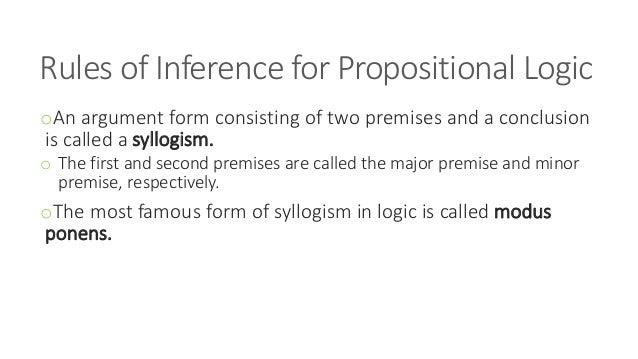



Valid Amp Invalid Arguments




Inductive Reasoning Definition Basing A Conclusion On Specific Examples Examples All Crows Are Black The Sun Will Rise Tomorrow Pdf Free Download
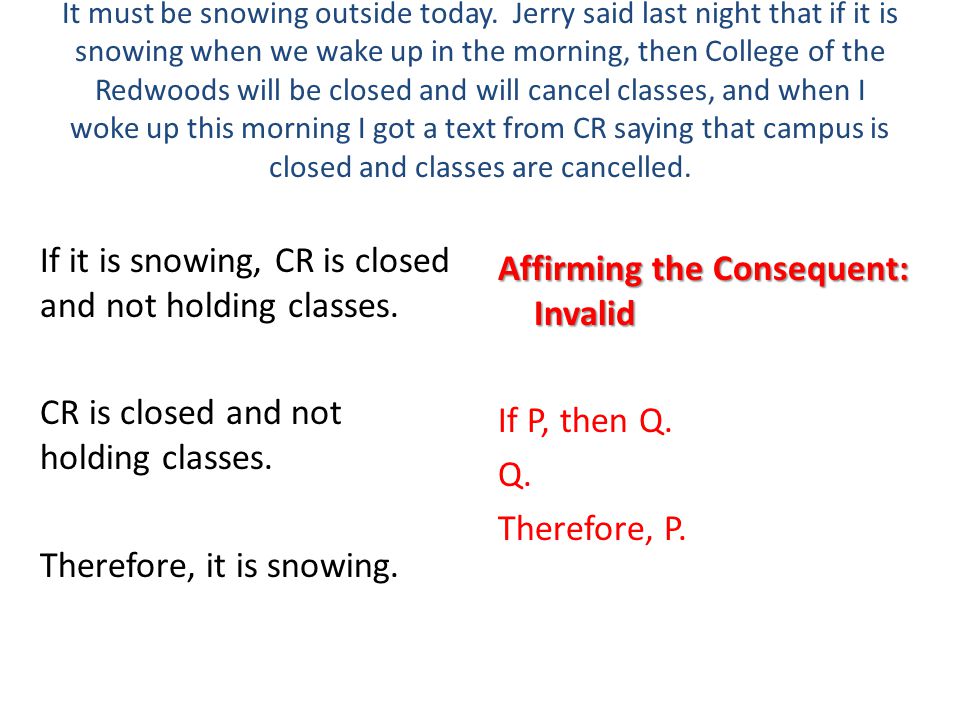



Evaluating Philosophical Claims And Theories Ppt Video Online Download




A Successive Conditionalization Approach To Disjunctive And Syllogistic Reasoning Semantic Scholar
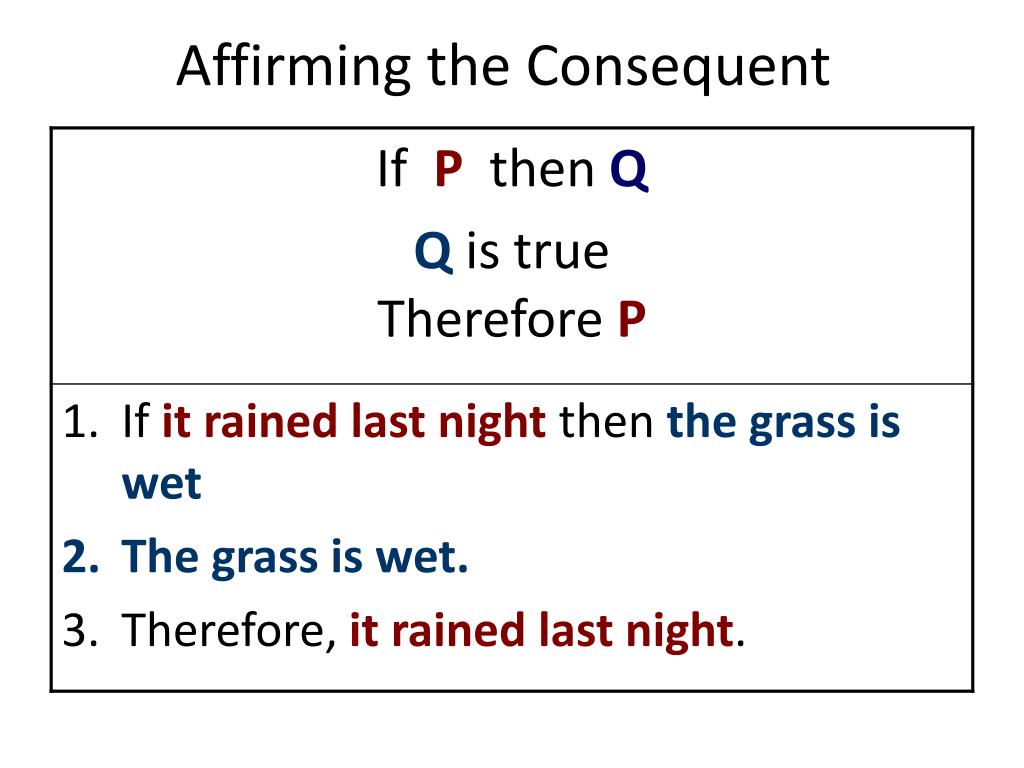



Ppt Dr Robert Barnard Powerpoint Presentation Free Download Id



6 Conditional Derivations A Concise Introduction To Logic




Logic Propositions N N A Proposition Is A
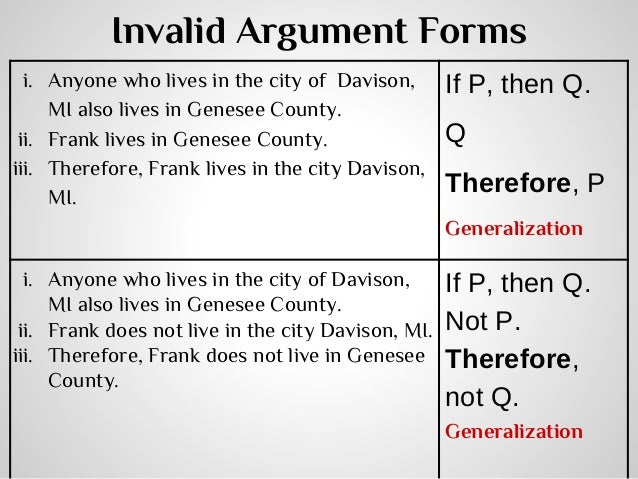



Understanding Logical Argumentation Structure And Reasoning
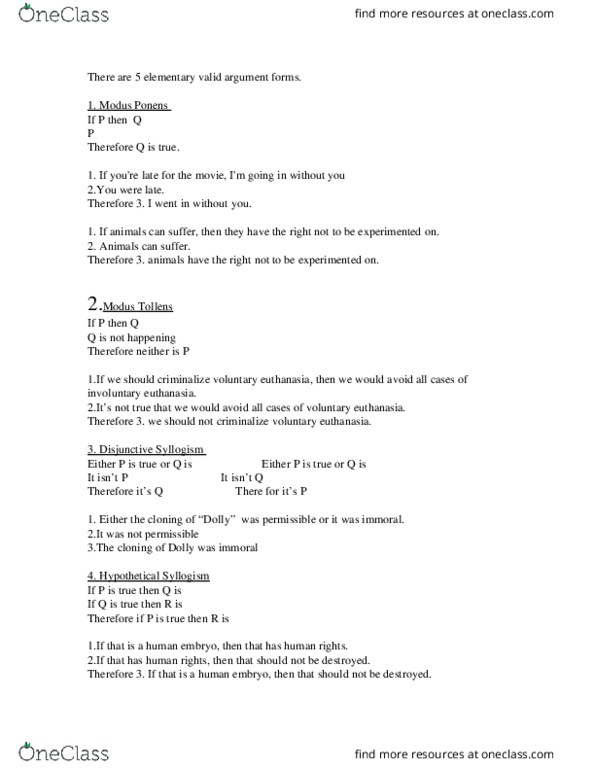



Huma 2615 Lecture Notes Winter 15 Lecture 4 Modus Tollens Modus Ponens Involuntary Euthanasia




Negating The Conditional If Then Statement P Implies Q Mathbootcamps



18 Autodidacticism Ideas Logic And Critical Thinking Logical Fallacies Blooms Taxonomy Questions




Analyzing Arguments And Proofs Ppt Download




Philosophy 103 Linguistics 103 Yet Still Even Further




Pdf Rules Of Logical Inference Dr Jason J Campbell Academia Edu
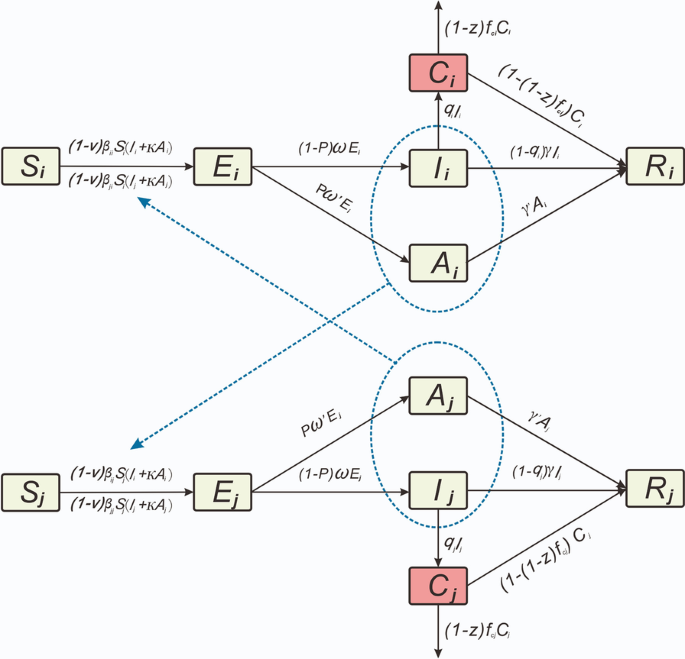



Effectiveness Of Potential Antiviral Treatments In Covid 19 Transmission Control A Modelling Study Infectious Diseases Of Poverty Full Text




Logical Arguments Modus Ponens Modus Tollens Youtube
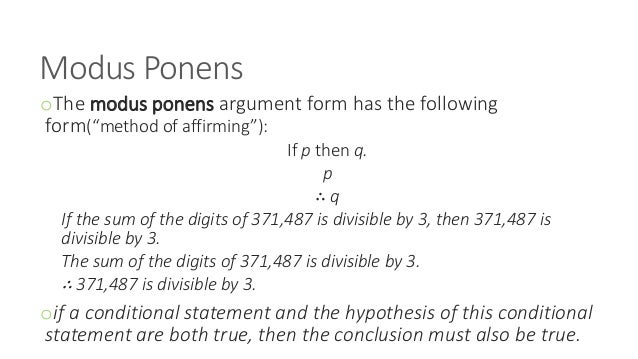



Valid Amp Invalid Arguments



Http Web Calstatela Edu Faculty Hmendel Classwork Phil250 Arguments Basicnotions Pdf




Logical Fallacies Logical Fallacies Are Statements That May




Slides Show




Understanding If P Then Q Youtube
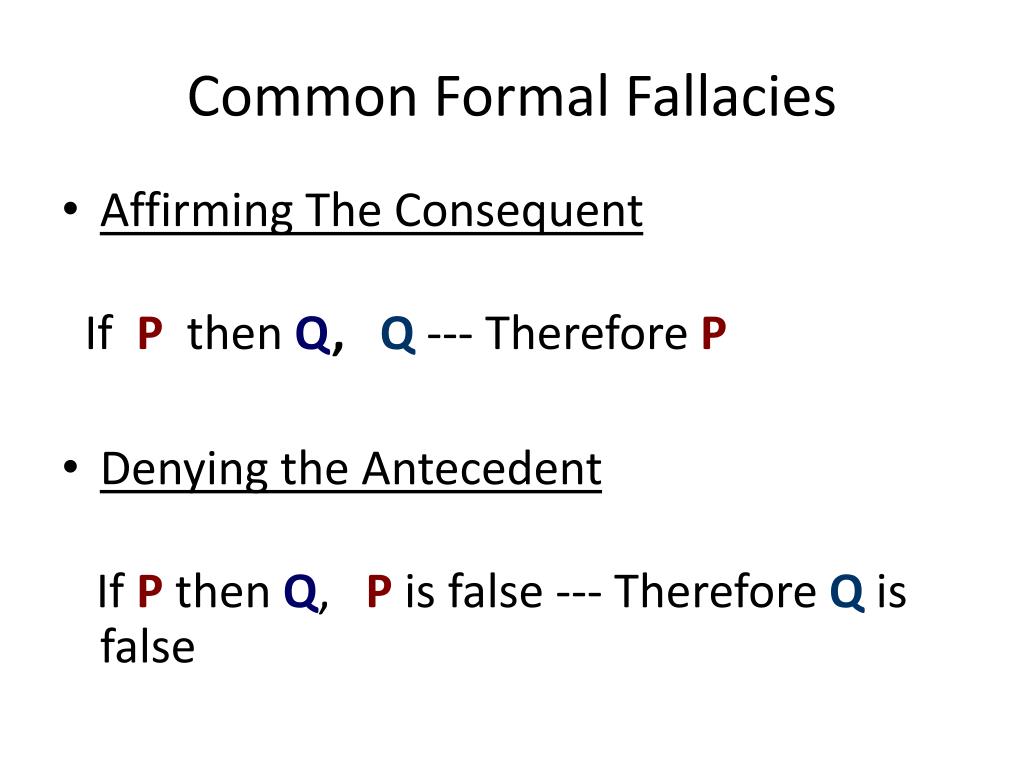



Ppt Dr Robert Barnard Powerpoint Presentation Free Download Id
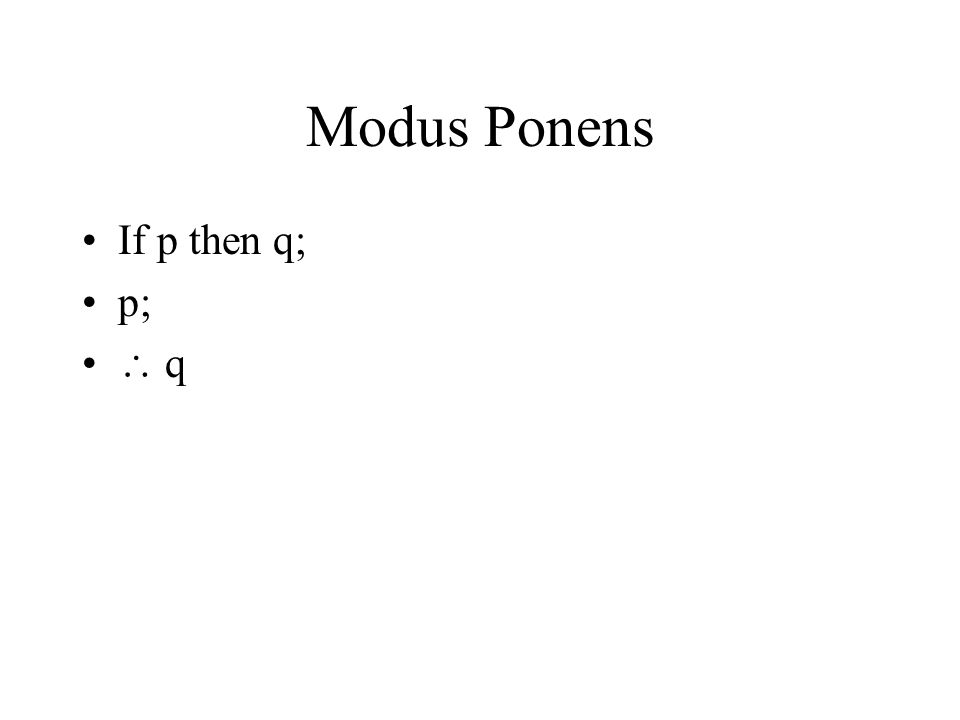



Valid And Invalid Arguments Ppt Video Online Download
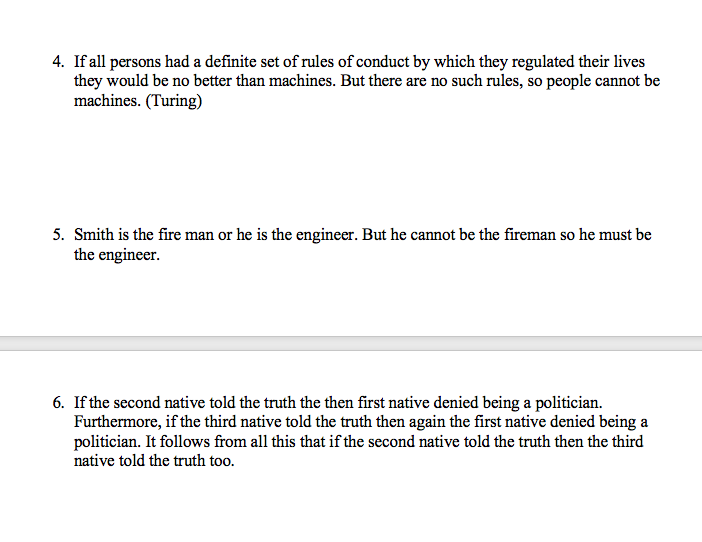



Put The Following Disjunctive And Hypothetical Syl Chegg Com




Slides Show




Philosophy 103 Linguistics 103 Yet Still Even Further




Psychologie En Wetenschap Week 2 Studeersnel




Truth Table To Determine If An Argument Is Valid Youtube
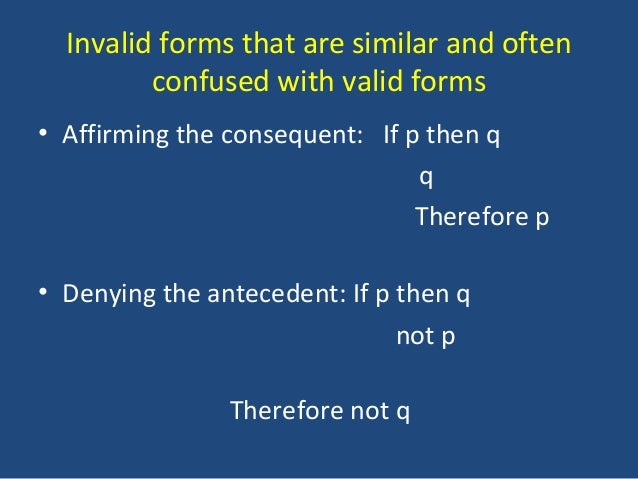



Chapter 3




1 Valid And Invalid Arguments 2 Definition Of Argument Sequence Of Statements Statement 1 Statement 2 Therefore Statement 3 Statements 1 And 2 Are Ppt Download




Fallacy Of Affirming The Consequent A Man After God S Own Heart
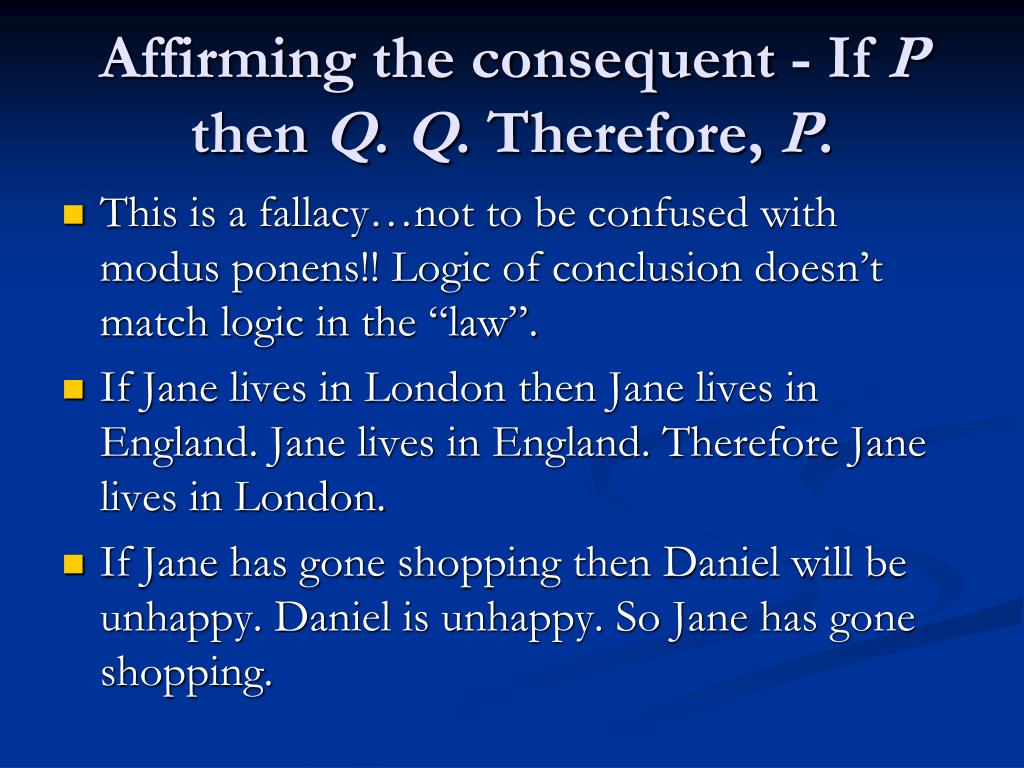



Ppt Components Of Barriers To Critical Thinking Powerpoint Presentation Id




C81cog Cognitive Psychology 1 Syllogistic Reasoning Dr Alastair D Smith Room B22 School Of Psychology Ppt Download




Logical Arguments Modus Ponens Modus Tollens Youtube




Pdf Why Circular Reasoning Leads To Weak Theories And How Open Science Can Help Semantic Scholar



Http Scholarworks Gvsu Edu Cgi Viewcontent Cgi Filename 2 Article 1007 Context Books Type Additional




10 Points Question 1 Consider The Following Argument Chegg Com
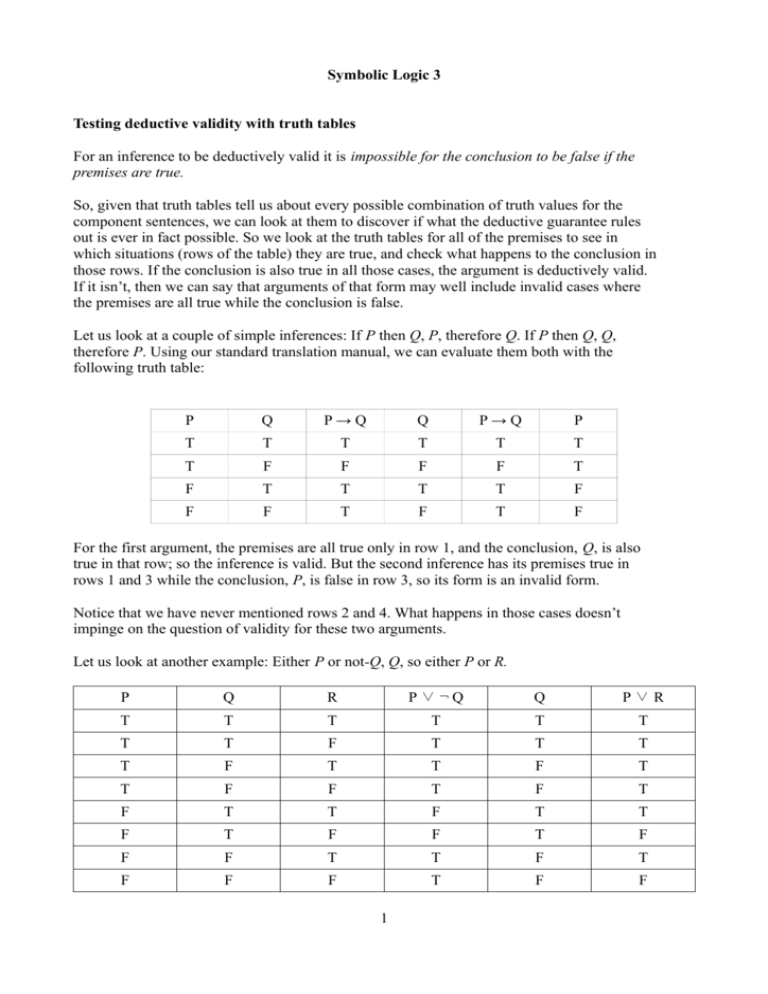



Symbolic Logic 3 Testing Deductive Validity With Truth Tables For An




Exercises Questions And Activities Pages 1 19 Flip Pdf Download Fliphtml5




Slides Show




Slides Show




Faith And The Philosophy Of Science Hebrew For Christians
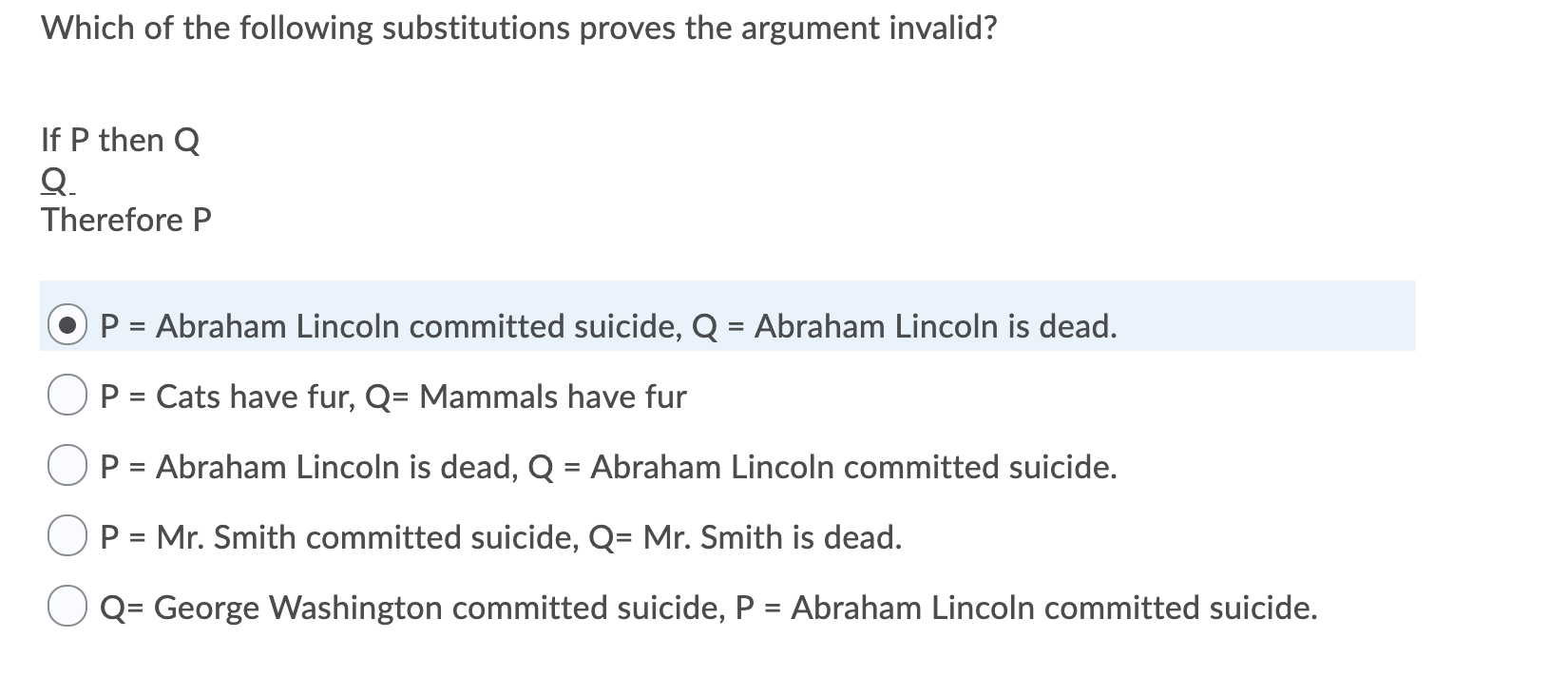



Which Of The Following Substitutions Proves The Chegg Com



0 件のコメント:
コメントを投稿